Author: admin
-
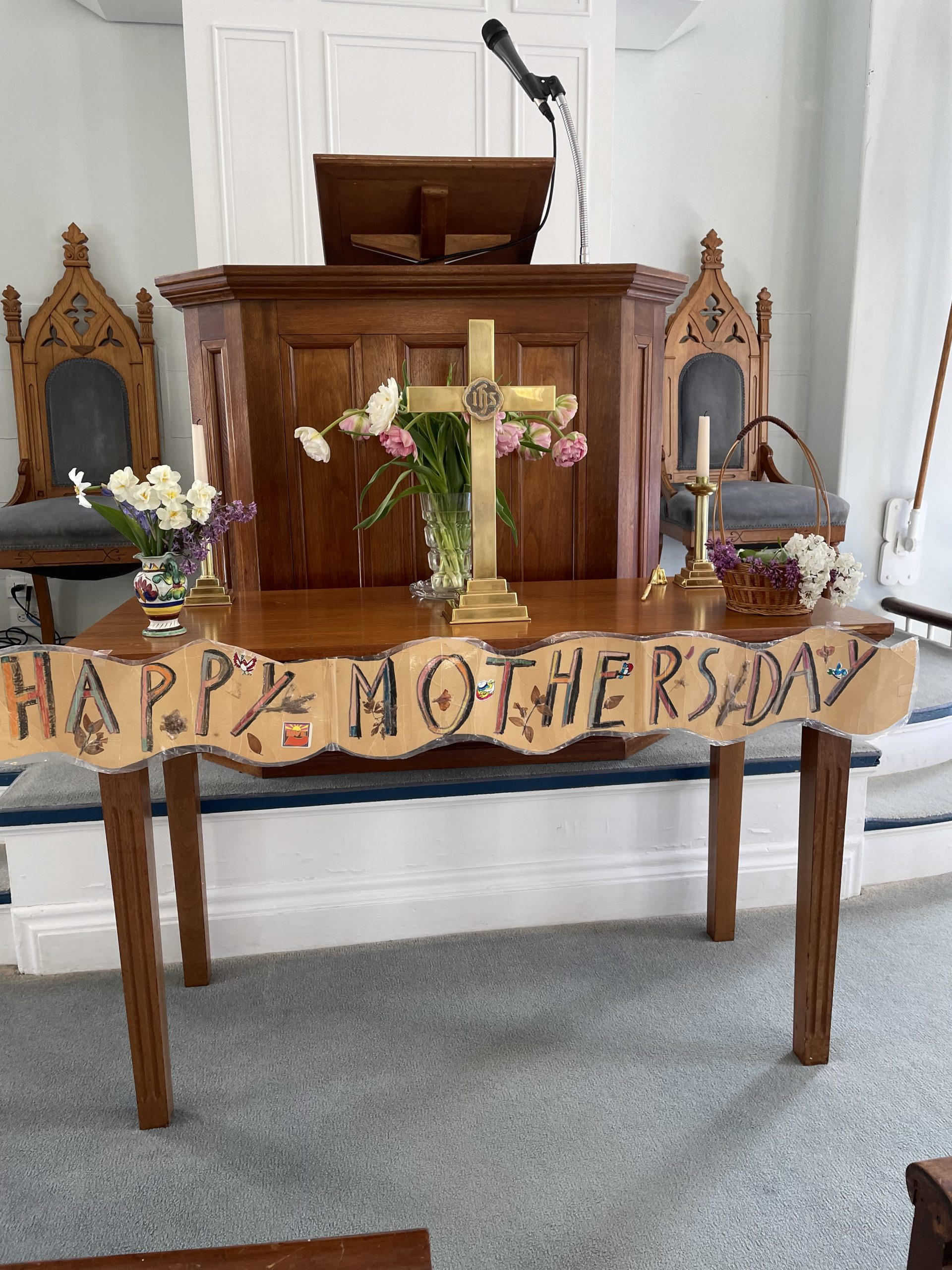
Mothers’ Day
Banner by Broderick kids years ago. Lilacs by Isla and Emily. Tulips from Charlotte Wright. You never know what will show up on a Sunday morning in Chilmark.
-
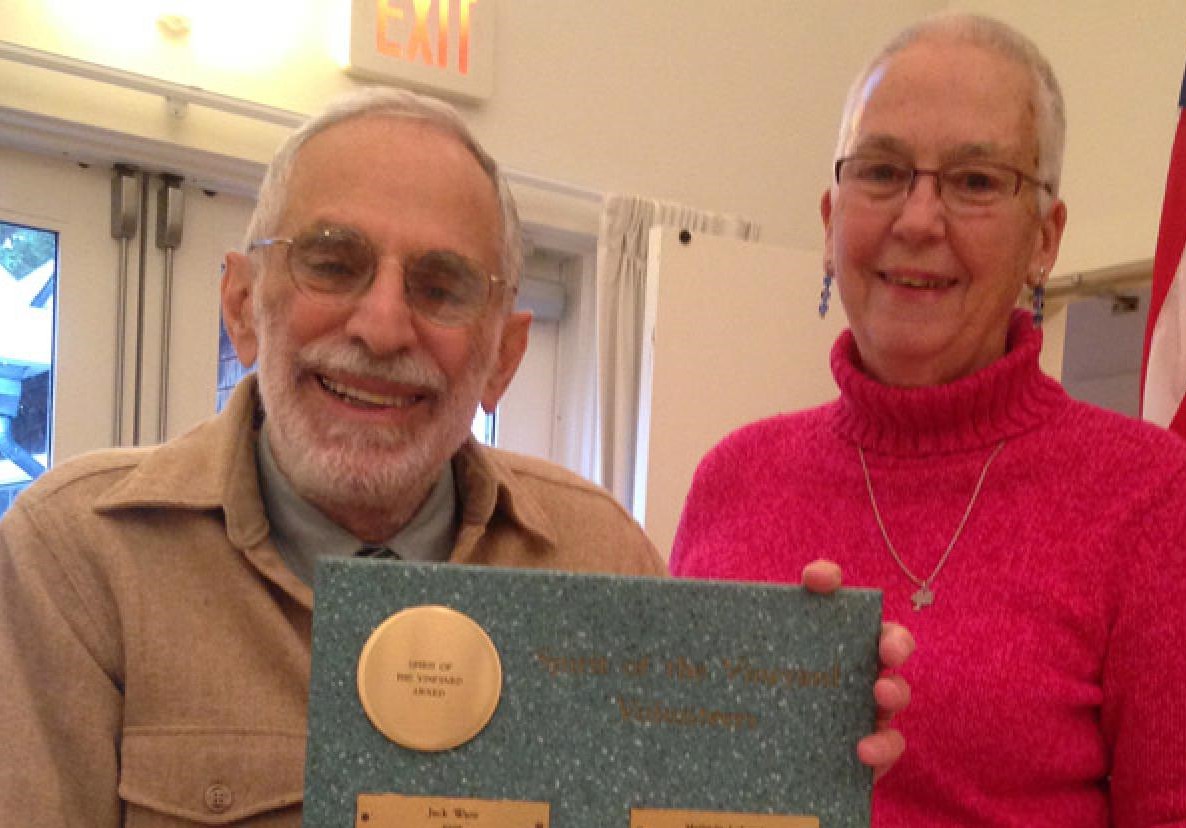
3 Sunday in Easter
Rev. Vicky Hanjian was our guest pastor and preached on John 21:1-17. It was an inspiring sermon..see below. Breakfast on the Beach John 21:1-17 Chilmark May 4, 2025 Vicky Hanjian There had been a terrible breach of the friendship between Peter and Jesus. At a point when Peter might have shown incredible courage by affirming…
-
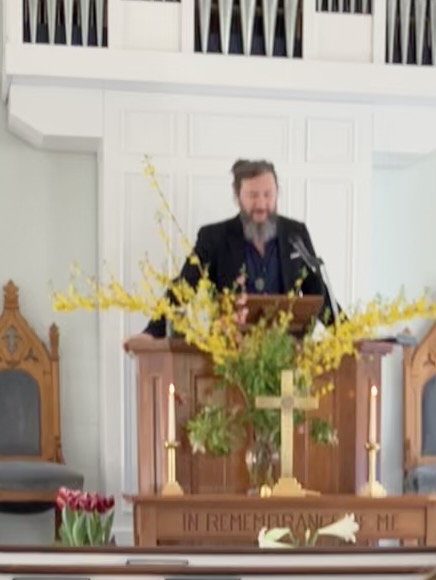
April 27 Worship with Sean McMahon
It was another special Sunday. With Rev. Stoddard on vacation, Sean McMahon, music minister, preached and played the hymns while Violet Southwick played prelude, interlude and postlude on her violin, a medley of Irish tunes. Sean’s sermon is below: Responsive Reading: 2 Tim. 2:11-13. This is a trustworthy saying: If we died with Him, we will…
-

Ann Deitrich
Obituary Margaret Ann Deitrich (Kammerer), age 93, of Chilmark, peacefully passed away at the Henrietta Brewer House on Sunday April 20, 2025. Margaret “Ann” is survived by her devoted son Charles Deitrich of Chilmark, MA and daughter Rebecca Overgaard (Patrick O’Dea) of Ramsey, N.J. Loving grandmother of Alexandra Overgaard Nunez (Sergio) of Middletown, DE and…
-
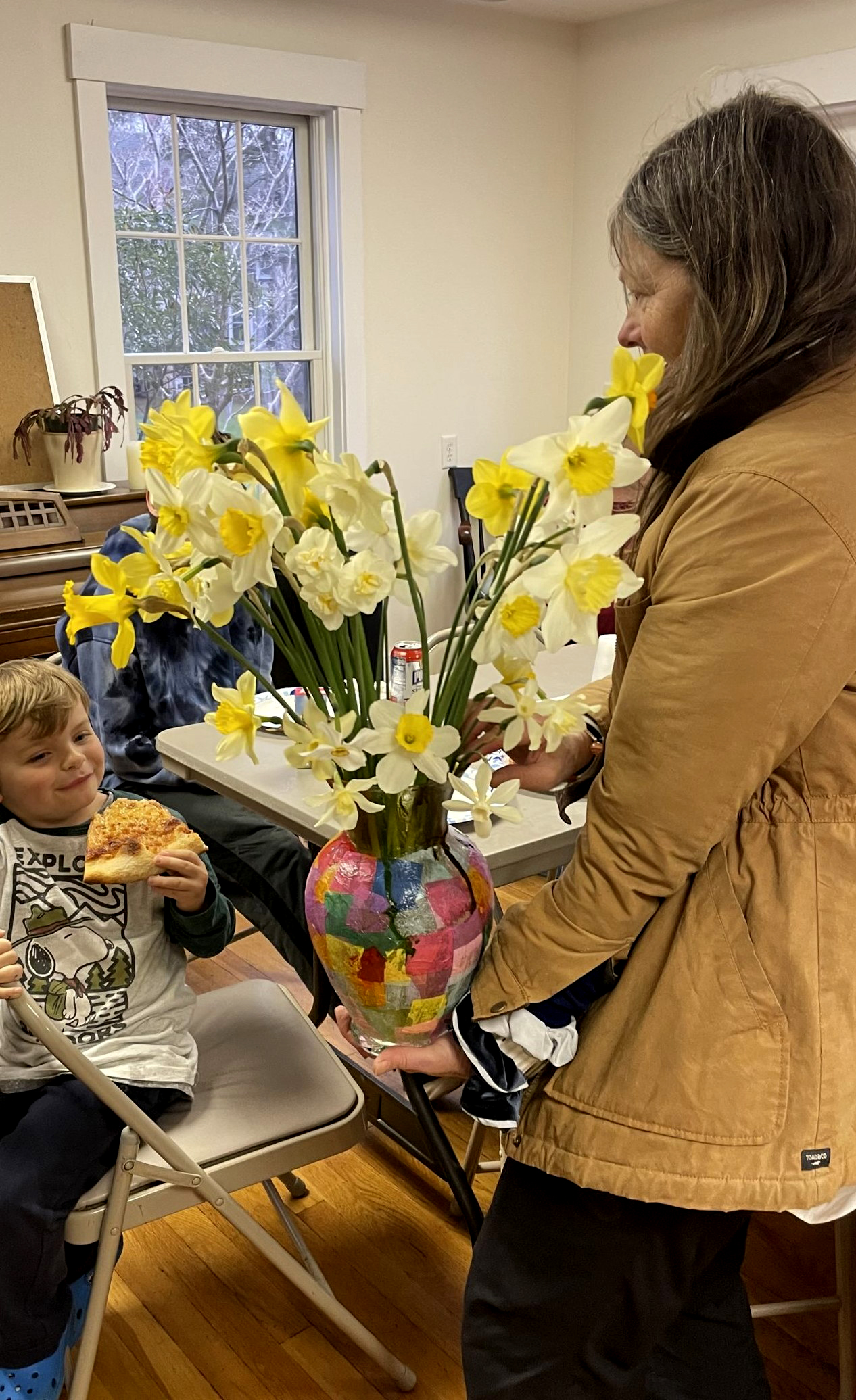
Claire shows off Sunday School Vase at pizza night.
The vase is on its way to Featherstone Center for the Arts sale. The kids made it Sunday and will decide how to responsibly use any money earned.
-
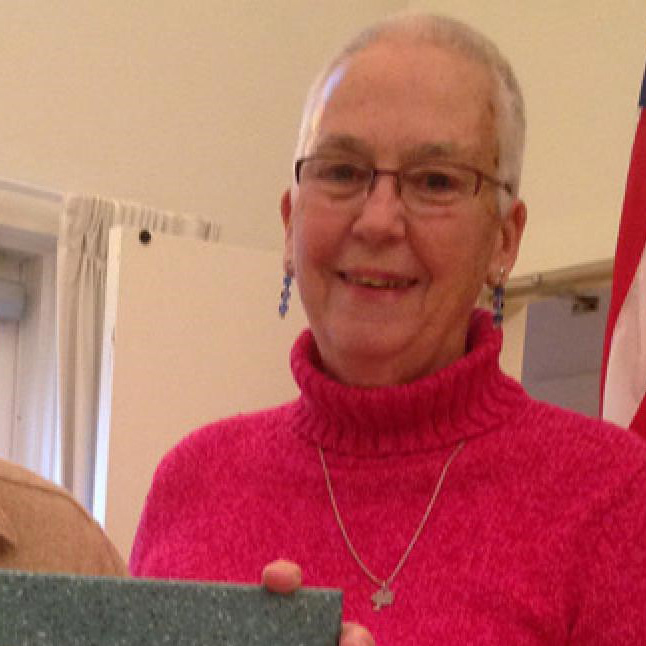
Vicky Hanjian’s Sermon April 14, 2024
“A Recognition Event”Chilmark ChurchApril 14, 2024Hosea 6:1-3Luke 24:36 – 49 We pick up the Easter story just after the folks who met Jesus on the road to Emmaus have shared their “heart-burning” experience of recognizing Jesus in the sharing of bread. The word “recognize” is interesting: to know someone or something because you have seen…
-

Birthday Tea Party
Feb 3rd, 3 mothers and grandmothers rented the Fellowship Hall for 3 ,7yr old girls’ joint birthday party. The photos speak for themselves. The hall underwent a complete transformation but when they departed, you’d never know they had been there. Perfect guests. Stage getting set. The girls get seated. Before and after. THAT’S A TEA…
-
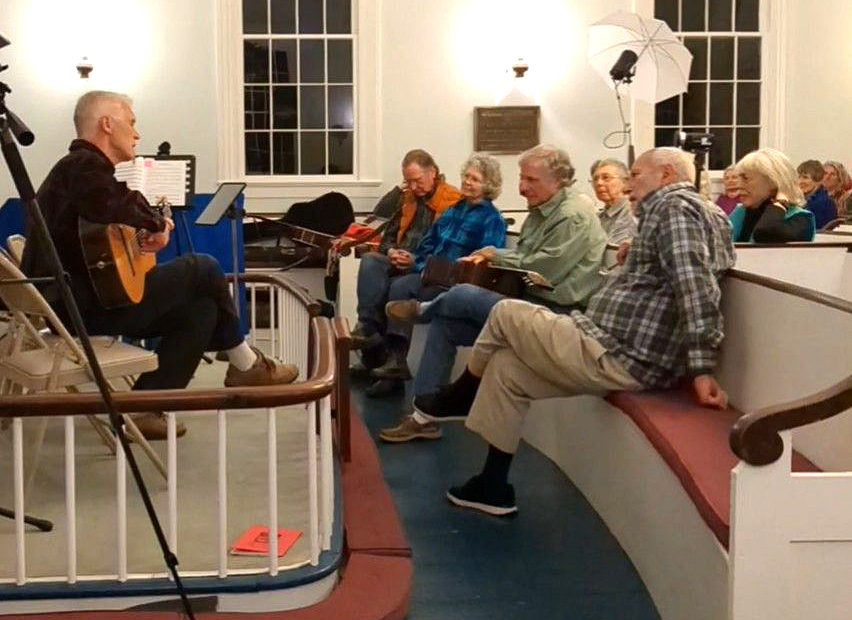
Third Offering of Music and Light.
The last for the season OFFERING OF MUSIC AND LIGHT WAS FEBRUARY 4. Mark and Molly performed and then, after the supper reception that Claire prepared, they broadcast their show “Songs from the Sea”. Dan read some wonderful poems and sang and played two original songs. After all the entertainment ended food was served. A…
-
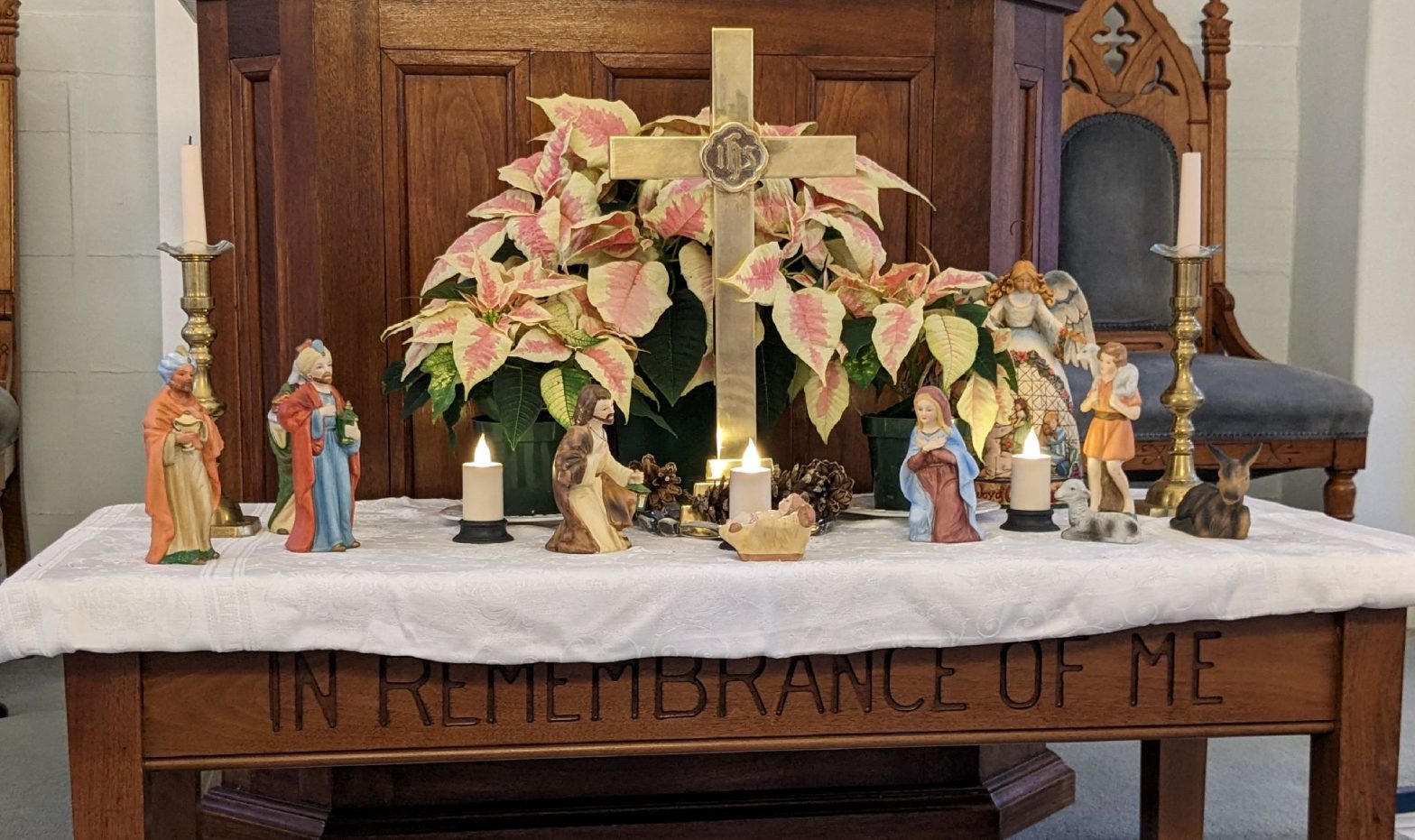
Christmas Eve
Lovely service. Community friends gathered at 5 for 8 lessons and carols. Some musicians cancelled at the last minute because of illness so we didn’t get the Bach on cello but Sean MacMahon sang his heart out on ‘Mary Did You Know? filling the sanctuary with sound” to open the service. Mary McConneloug sang a…